Choosing the Right Plumber for Washing Machine Installation
Understanding the Importance of a Skilled Plumber
In the realm of home improvement, few tasks carry as much weight as selecting the right professional to undertake the installation of essential appliances. When it comes to a plumber to install washing machine, the stakes are even higher—precision, expertise, and an understanding of intricate plumbing systems are paramount. A skilled plumber doesn’t merely connect hoses; they weave a seamless tapestry of water flow and drainage, ensuring your laundry rituals remain uninterrupted. Choosing the right plumber for this task transforms a mundane chore into a symphony of efficiency.
South Africa’s diverse plumbing landscape demands specialists who can navigate the unique challenges of local plumbing infrastructure. Whether you’re upgrading your home or installing a new unit, entrusting a seasoned professional guarantees safety, durability, and peace of mind. Here are key qualities to look for:
- Certification and licensure, proving their mastery in plumbing craftsmanship
- Experience with washing machine installations, understanding the nuances of different models
- Positive references and a reputation for reliability in your community
Remember, the right plumber to install washing machine doesn’t just connect the pipes—they safeguard your home from potential leaks, water damage, and future headaches. Their expertise ensures your appliances operate smoothly within the intricate web of your household plumbing.
Qualities to Look for in a Professional Plumber
Choosing the right plumber to install washing machine is more than just finding someone who can connect hoses. It’s about trusting a professional who understands the delicate balance of your household’s plumbing system. When your laundry area becomes a hub of activity, the last thing you want is a leak or drainage issue causing chaos. A skilled plumber brings a meticulous eye for detail, ensuring every connection is secure and perfectly aligned.
Look for qualities that reflect both craftsmanship and reliability. Certification and licensure are fundamental—they confirm that the plumber to install washing machine has undergone proper training and adheres to safety standards. Experience is equally vital; a seasoned professional will recognize the nuances of different washing machine models and adapt their approach accordingly. Community references often speak volumes, revealing a reputation built on trust and consistency.
Ultimately, the right plumber does more than just connect pipes—they safeguard your home’s integrity, allowing your appliances to operate smoothly within the complex web of household plumbing. Trusting a reputable professional means peace of mind, knowing your laundry routines are in capable hands!
How to Verify Plumbing Credentials and Experience
Choosing the right plumber to install washing machine is an act of trust — a delicate dance between expertise and integrity. In a landscape where plumbing mishaps can lead to costly property damage, verifying credentials becomes more than a formality; it’s a safeguard for your home’s future. A licensed plumber to install washing machine has undergone rigorous training, ensuring they possess the foundational knowledge to navigate complex household plumbing systems with precision.
Experience, however, is equally vital. A seasoned professional often recognizes subtle nuances that less experienced plumbers might miss. To gauge their proficiency, consider asking for references or reviews from previous clients. You might also inquire about their familiarity with specific washing machine models, as each appliance can present unique installation challenges. An adept plumber to install washing machine will tailor their approach, ensuring each connection is flawless—protecting your home from leaks, drainage issues, and long-term damage.
Cost Estimates and Budgeting for Installation Services
When it comes to budgeting for a plumber to install washing machine, transparency is crucial. The cost can vary dramatically depending on the complexity of the job and the region. In South Africa, a straightforward installation might start at a modest fee, but unforeseen complications—like outdated plumbing or inaccessible piping—can inflate the final estimate. It’s wise to request detailed quotes upfront to avoid surprises.
Understanding the breakdown of costs—labor, materials, and any additional services—provides clarity and helps you gauge whether the price aligns with the quality of work expected. Sometimes, investing a little more upfront with an experienced plumber to install washing machine ensures longevity and peace of mind. Remember, the cheapest option might not always be the wisest; it’s about balancing affordability with craftsmanship and reliability. A well-informed decision fosters trust and safeguards your home from future plumbing headaches.
Steps Involved in Washing Machine Installation
Assessing the Installation Site
Every installation begins with a careful assessment of the site—an essential step that transforms a mundane task into an artful process. When a plumber to install washing machine arrives, they first scrutinize the space, ensuring it’s a haven for this vital appliance. The location must offer easy access to water supply lines, proper drainage, and adequate electrical outlets, all while harmonizing with the home’s aesthetic flow.
During this assessment, the plumber examines the existing plumbing infrastructure, identifying potential obstacles or modifications needed to seamlessly integrate the washing machine. Sometimes, a simple reroute of pipes or an upgrade of the drainage system is required—these details are the magic that ensures longevity and efficiency.
A thorough site evaluation, therefore, is not just about fitting the appliance; it’s about weaving practicality and precision into the very fabric of the home. This meticulous process guarantees that when the washing machine begins its dance, it does so in harmony with the house’s symphony of plumbing.
Preparing Plumbing Connections
Installing a washing machine isn’t just about plugging it in and pressing start; it’s a meticulous process that requires precision and patience. When a plumber to install washing machine arrives, they begin by preparing the plumbing connections—an essential step that ensures your appliance functions smoothly and lasts longer. Proper water supply lines must be connected securely, avoiding leaks that can cause damage over time.
The plumber carefully assesses the existing plumbing infrastructure, looking for any obstacles or outdated pipes that might hinder installation. Sometimes, a simple reroute of water lines or an upgrade of drainage systems is necessary to create a seamless connection. This step involves measuring, cutting, and fitting pipes with care, ensuring everything aligns perfectly. The goal is to craft a setup that not only works efficiently but also withstands the test of time—because a well-installed washing machine is a household’s quiet hero in everyday life.
Connecting Water Supply Lines
In the shadowed corridors of home maintenance, few tasks carry as much weight as the connection of water lines for a new washing machine. When a skilled plumber to install washing machine arrives, they don’t merely connect hoses—they weave a delicate symphony between the appliance and the unseen arteries of your home’s plumbing system.
The process begins with a thorough inspection of the existing water supply. A professional understands that securing the water supply lines isn’t just about fitting pipes; it’s about forging an enduring bond that resists leaks and the silent creep of corrosion.
They carefully measure and cut pipes, ensuring each connection is tight and precise—an act of craftsmanship that guarantees the washing machine will perform with unwavering reliability. Sometimes, rerouting or upgrading the water lines becomes necessary to create a seamless flow, transforming a mundane task into an artful act of engineering.
- The plumber assesses the current plumbing infrastructure, looking for obstructions or outdated connections.
- Securely attaching the supply lines, ensuring they are free from leaks or weak points.
- Testing the flow, watching for drips or dribbles that could herald future trouble.
This meticulous process, often overlooked, is the backbone of a resilient and long-lasting washing machine installation—an invisible promise of durability in a world that often forgets the silent strength of well-crafted plumbing.
Ventilation and Drainage Setup
As the final act in the grand performance of washing machine installation, the delicate choreography of ventilation and drainage setup takes center stage. When a skilled plumber to install washing machine arrives, they don’t merely connect pipes—they craft an intricate system that ensures optimal airflow and efficient water removal, vital for the longevity of your appliance. Proper ventilation prevents musty odors and mold buildup, safeguarding your laundry space from hidden threats.
Equally vital is the drainage setup, which must be both robust and precise. An adept plumber evaluates the existing drainage infrastructure, ensuring it can handle the volume and pressure of wastewater. They meticulously install the drain hose, securing it firmly to prevent leaks or backflow issues. Sometimes, installing a dedicated standpipe or upgrading the current drain ensures seamless operation. This process involves a keen eye for detail, as even minor imperfections can lead to costly water damage down the line.
- Checking for proper slope to facilitate gravity-assisted drainage
- Ensuring the drain pipe is free from obstructions
- Securing the drain hose to prevent dislodgement during cycles
In this realm of unseen engineering, every connection bears the weight of future reliability. When a professional plumber to install washing machine undertakes this task, they weave a resilient fabric of ventilation and drainage—protecting your home’s foundation and ensuring your laundry days remain effortless and worry-free.
Electrical Considerations
Once the pipes are perfectly aligned and the drainage system is humming in harmony, attention shifts to the all-important electrical considerations. Contrary to popular belief, installing a washing machine isn’t merely about plugging it in; it’s about ensuring that every electrical connection adheres to safety standards and functions flawlessly. A skilled plumber to install washing machine will often collaborate with an electrician to verify the circuit’s capacity, preventing overloads that could turn laundry day into a mini disaster.
Ensuring proper grounding and installing a dedicated power outlet is paramount. This not only safeguards your appliance but also protects your home from potential electrical faults. Sometimes, a simple upgrade—perhaps adding a residual current device (RCD)—can make all the difference, offering peace of mind during those inevitable washing machine spin cycles. Ultimately, these electrical steps, though often unseen, are the backbone of a seamless installation, woven into the overall fabric of durable, worry-free laundry days.
Testing the Installation for Leaks and Safety
After the meticulous process of connecting water lines and ensuring drainage alignment, the final step in washing machine installation is rigorous testing for leaks and safety. This phase is often overlooked yet crucial in safeguarding your investment and peace of mind. A professional plumber to install washing machine will carefully observe the connections, checking for any signs of water seepage or drips that could signal an incomplete seal or faulty fitting.
To ensure comprehensive safety, the plumber will also verify electrical connections, confirming that the grounding is secure and that the circuit can handle the load of the appliance. A swift inspection might include:
- Running the washing machine through a cycle to observe for leaks
- Ensuring no water escapes from hose fittings or drainage system
- Checking electrical safety measures, such as RCD functionality
Such thorough testing not only prevents potential water damage but also guarantees that your laundry routines remain smooth and worry-free. When a qualified plumber to install washing machine conducts this final inspection, the harmony of your home’s plumbing and electrical systems is truly secured, making every laundry day a seamless experience in comfort and safety.
Tools and Materials Needed for Washing Machine Installation
Essential Plumbing Tools
When it comes to installing a washing machine, having the right tools and materials can make all the difference. A skilled plumber to install washing machine relies on a well-stocked toolkit to ensure a seamless setup. Essential plumbing tools include adjustable wrenches, pipe cutters, and a reliable plunger—each serving a vital role in connecting water lines and drainage with precision. Additionally, durable hoses, fittings, and T-joints are crucial materials that help create leak-proof connections and secure water supply lines.
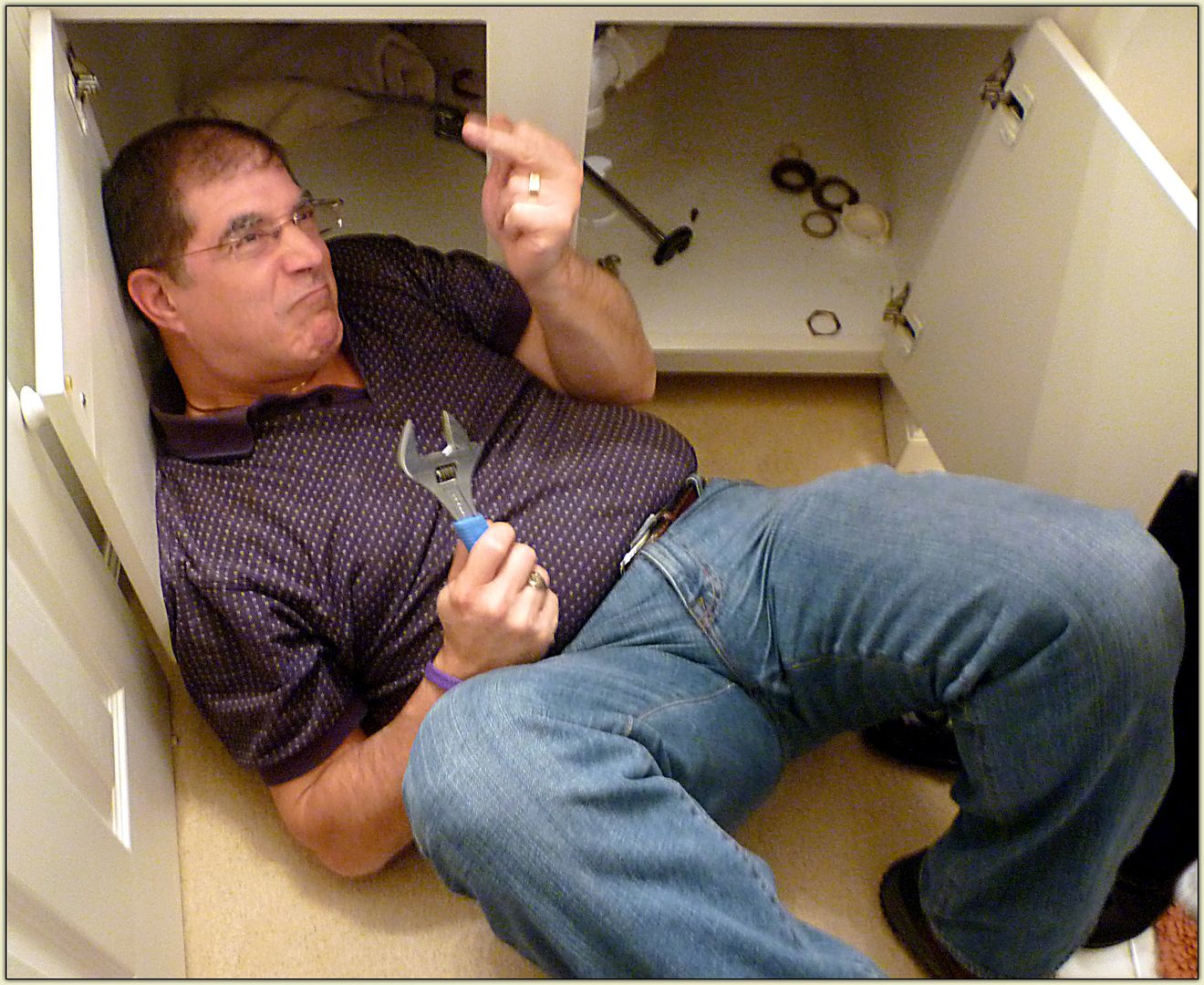
For a smooth installation, it’s often helpful to have a few specific items on hand. A few common materials needed are flexible water hoses, pipe sealant, and a level to ensure your washing machine sits perfectly. When working with water supply lines, an unclogged drain and proper ventilation are also critical components. In some cases, a plumber to install washing machine might recommend using specialized tools like a pipe wrench or a basin wrench to reach tight spaces. These tools not only save time but also prevent potential damage to your plumbing system, ensuring long-lasting results and peace of mind for homeowners in South Africa seeking reliable service.”
Necessary Plumbing Supplies
When it comes to the crucial task of installing a washing machine, having the right tools and materials can mean the difference between a smooth setup and a costly mishap. A qualified plumber to install washing machine will typically rely on a selection of essential plumbing supplies to ensure the job is done right the first time. These include adjustable wrenches, pipe cutters, and reliable hoses, each designed to create secure, leak-proof connections. Appropriate fittings, such as T-joints and pipe sealant, help ensure water flows seamlessly without any drips or leaks.
In addition to tools, certain materials are indispensable for a professional installation. Flexible water hoses, a level for proper positioning, and ventilation accessories are often recommended. Sometimes, a plumber to install washing machine will also use specialized equipment like a basin wrench or pipe wrench to access tight spaces and reach tricky connections. This blend of skill, precision, and quality materials guarantees a reliable installation tailored to the specific needs of South African homes.
Electrical Components and Safety Equipment
In the silent symphony of a perfect laundry day, every note must resonate with precision and care. When a plumber to install washing machine steps into the domestic arena, they bring more than mere tools—they wield the essence of mastery. Essential electrical components, such as dedicated power outlets and circuit breakers, form the backbone of a safe and efficient installation. These elements safeguard your home while powering the heartbeat of your washing machine.
Safety equipment is equally vital—gloves, goggles, and insulated tools shield the skilled tradesperson as they navigate the intricate dance of pipes and wires. Proper grounding and circuit protection are non-negotiable, especially in South African homes where electrical standards demand diligence. The right combination of electrical and safety gear ensures not only a seamless fit but also peace of mind, knowing every connection is secure and compliant.
DIY vs. Hiring a Professional Plumber
Benefits of Professional Installation
While some homeowners entertain the idea of tackling a washing machine installation DIY-style, the reality often reveals its pitfalls. A skilled plumber to install washing machine ensures the job is done efficiently, safely, and in accordance with local plumbing standards. The temptation to save costs by avoiding professional help can lead to costly water damage, leaks, or even electrical hazards—risks that no one wants to gamble with.
Hiring a professional offers tangible benefits beyond peace of mind. They possess the expertise to navigate complex plumbing configurations, ensuring your washing machine is connected securely to water supply lines and drainage systems. Plus, a licensed plumber will test the installation thoroughly, preventing future inconveniences caused by unnoticed leaks or improper drainage.
For those considering the installation, prioritizing a qualified plumber guarantees not only compliance with safety regulations but also extends the lifespan of your washing machine. Ultimately, professional installation transforms a routine task into a seamless process, allowing you to enjoy the convenience without worry.
Risks of DIY Washing Machine Setup
Attempting a DIY washing machine installation might seem tempting, especially when the lure of saving a few rand is strong. Yet, beneath this veneer of simplicity lies a labyrinth of potential pitfalls—hidden leaks, improper drainage, or electrical mishaps that can turn a manageable task into a costly nightmare. While the thrill of a hands-on approach is undeniable, it’s crucial to recognize that a washing machine’s plumbing connections demand precision and expertise. A single misstep can jeopardize the entire setup, leading to water damage or unsafe electrical conditions.
Choosing a qualified plumber to install washing machine transforms this complex process into a seamless experience. They possess the artisan’s touch, ensuring every connection aligns perfectly with local plumbing standards. This meticulous approach not only safeguards your home but also prolongs the lifespan of your appliance. Remember, a licensed professional’s skill is an investment—one that shields you from future inconveniences and the chaos of unexpected leaks. For homeowners in South Africa, entrusting a skilled plumber to install washing machine is an essential step toward peace of mind and a properly functioning laundry setup.
When to Call a Licensed Plumber
When it comes to installing your washing machine, the choice between a DIY approach and hiring a professional isn’t just about saving a few rand; it’s about safeguarding your home from plumbing disasters that could rival a soap opera plot twist. While the allure of a quick fix might seem tempting, remember that a plumber to install washing machine brings more than just tools—they bring expertise, precision, and a keen eye for detail.
Attempting a DIY installation might feel like a fun weekend project, but it often results in leaks, improper drainage, or electrical hazards that can turn your laundry day into chaos. For those who prefer their plumbing done right, calling a licensed plumber ensures every connection is secure and compliant with local standards. After all, a professional plumber to install washing machine knows exactly how to prevent water damage and electrical mishaps—problems that can cost far more than a professional service in the long run.
Plus, a seasoned plumber can swiftly navigate those tricky corners and tight spaces that leave even the most enthusiastic DIYer scratching their head. So, if you value peace of mind and a properly functioning laundry setup, it’s best to leave the plumbing to the pros—your washing machine and your home will thank you!
Common Challenges During Installation and How to Address Them
Dealing with Inadequate Space
One of the most common challenges when a plumber to install washing machine is dealing with inadequate space. Picture this: trying to squeeze a modern, energy-efficient washing machine into a tiny laundry nook that was never meant for it. It’s like trying to fit a giraffe into a compact car! Lack of space can lead to complications with water supply lines, drainage, and ventilation, turning what should be a straightforward task into a frustrating puzzle.
Fortunately, there are solutions. First, assess the installation site thoroughly. Sometimes, a simple rearrangement of existing appliances or shelving can free up enough room. If space is truly limited, a professional plumber can recommend alternative placement options, such as under the countertop or in a dedicated utility closet. Remember, when you hire a plumber to install washing machine, their expertise ensures that the setup is both functional and compliant with local plumbing standards.
In cases where space constraints are severe, an experienced plumber might suggest custom modifications or suggest a more compact washing machine model. Ultimately, addressing this challenge early on saves money, time, and the headache of a poorly installed appliance that can lead to leaks or electrical hazards down the line.
Handling Old Plumbing Connections
Handling old plumbing connections can transform a straightforward washing machine installation into a labyrinth of hidden challenges. Often, aged pipes may be corroded or poorly aligned, making it difficult for a plumber to install washing machine without risking leaks or blockages. These antiquated connections require meticulous inspection and sometimes, a complete overhaul to ensure safety and efficiency.
Sometimes, the plumbing system may lack proper venting or have incompatible fittings that hinder a seamless connection. Here, a seasoned plumber to install washing machine will not only identify these issues but also recommend the best course of action to modernize the setup.
It’s crucial to recognize that old plumbing isn’t just a minor inconvenience; it can compromise the entire appliance’s performance. Therefore, addressing these underlying issues before installation ensures a durable, leak-free operation, saving homeowners from future headaches. When you hire a professional, you gain peace of mind knowing that every connection is secure and compliant with local plumbing standards, safeguarding your investment for years to come.
Resolving Water Leak Issues
During the installation process, unexpected challenges often emerge, turning what seems like a straightforward task into a complex puzzle. Water leaks are among the most common hurdles faced when a plumber to install washing machine begins their work. These leaks can stem from poorly fitted connections, corroded pipes, or overlooked seals that need delicate attention. Addressing these issues early on is paramount to prevent long-term damage and costly repairs.
One effective approach is meticulous inspection of all plumbing connections, especially in older homes where pipes may be brittle or misaligned. A seasoned plumber to install washing machine will often employ a combination of visual checks and pressure tests to identify leaks before they escalate. If leaks are detected, they might suggest replacing worn fittings or applying specialized sealants to ensure a watertight seal. Sometimes, an upgrade to modern piping can be the best solution, offering a durable barrier against future leaks and ensuring your washing machine operates smoothly for years to come.
By understanding these common challenges and their solutions, homeowners can better appreciate the importance of hiring a professional plumber to install washing machine. With expert care, the installation process transforms from a potential hazard into a seamless, secure setup—bringing peace of mind and a leak-free home environment. In South Africa’s unique plumbing landscape, having a trusted professional ensures that every connection is fortified against the unpredictable elements of age and wear.
Ensuring Proper Drainage and Venting
Proper drainage and venting are critical components often overlooked during washing machine installation, yet they are the backbone of a functional plumbing setup. In South Africa’s diverse plumbing landscape, inadequate drainage can lead to persistent flooding, foul odors, or water backups that threaten the integrity of your home. A skilled plumber to install washing machine will meticulously ensure that the drainage system is capable of handling the water volume efficiently, preventing future headaches.
One common challenge arises from improper venting, which can cause slow drainage or gurgling sounds. To mitigate this, professionals often incorporate an appropriately sized vent pipe, facilitating the free flow of air and preventing siphoning of the trap seal. Addressing these challenges requires a blend of experience and an intuitive understanding of local building codes. Sometimes, installing a dedicated vent or upgrading existing piping with modern materials becomes necessary, providing a seamless pathway for water and air alike.
- Ensuring the drain pipe is correctly positioned and securely connected.
- Verifying that venting allows for unobstructed airflow to prevent pressure buildup.
- Testing the entire drainage system with water pressure tests to identify potential blockages or leaks.
When a plumber to install washing machine meticulously attends to drainage and venting, they not only prevent future complications but also extend the lifespan of your appliance. This careful attention transforms what could be a source of persistent frustration into a well-oiled, reliable system that operates quietly and efficiently—an essential investment in safeguarding your home’s plumbing health. In South Africa’s environment—where older homes often feature antiquated piping—expertise in drainage and venting becomes not just recommended but vital for a durable, leak-free installation.
Maintaining Your Washing Machine and Plumbing System
Routine Checks to Prevent Leaks
Regular maintenance of your washing machine and plumbing system is essential to prevent unexpected leaks and costly repairs. Even the most advanced appliances can falter if their plumbing connections aren’t routinely checked. A well-maintained system not only extends the life of your washing machine but also ensures optimal performance, saving both time and money in the long run.
One of the simplest yet most effective steps is to inspect hoses and connections periodically. Look for signs of wear, cracks, or any moisture that might indicate a small leak waiting to escalate. Additionally, checking the drainage system and venting setup helps maintain proper water flow and prevents backups or flooding. For those who have recently had a plumber to install washing machine, scheduling routine checks with a professional ensures all connections remain secure and functioning perfectly.
To streamline this process, consider creating a maintenance checklist. For example, you might include:
- Inspecting hoses for cracks or bulges
- Checking for water stains around connections
- Ensuring drainage pipes are clear and unobstructed
- Verifying that the washing machine’s levelness to prevent undue stress on plumbing
These simple but vital checks can help catch small issues before they become major plumbing emergencies, ultimately safeguarding your investment and peace of mind.
Cleaning and Maintenance Tips
A well-maintained washing machine is the heart of a functional home, especially in South Africa where water efficiency and longevity are prized. Regular cleaning and vigilant maintenance of your plumbing system can dramatically extend the lifespan of your appliance while safeguarding your property from costly water damage. A key element often overlooked is the importance of a professional plumber to install washing machine correctly—an investment that pays dividends in peace of mind and durability.
Beyond initial setup, routine checks help ensure that hoses remain intact and connections stay secure. Inspecting hoses for cracks, bulges, or signs of wear is essential, as these are common culprits behind leaks. Additionally, cleaning out drainage pipes and ensuring proper venting prevents backups and flooding, especially during heavy usage periods. Remember, a seamless plumbing system isn’t just about convenience—it’s about protecting your home’s foundation.
To simplify ongoing maintenance, consider creating a simple checklist. It might include:
- Inspecting hoses for cracks or bulges
- Checking for water stains around connections
- Ensuring drainage pipes are clear
- Verifying the levelness of the washing machine to prevent undue stress on plumbing
Engaging a skilled plumber to install washing machine is crucial. Their expertise guarantees that all plumbing connections are properly secured, reducing the risk of leaks and ensuring the appliance performs optimally. In the unpredictable climate of South Africa, where water efficiency and reliability are vital, a professional installation combined with routine maintenance creates a resilient plumbing system that endures the test of time.
When to Schedule Professional Inspections
Maintaining your washing machine and plumbing system is a delicate dance between vigilance and expert intervention. In South Africa’s vibrant climate, where water conservation is more than a trend—it’s a necessity—regular inspections become the guardians of your home’s integrity. When should you schedule a professional inspection? If you notice water stains around connections, unexplained dampness, or if your appliance isn’t functioning smoothly, it’s time to call in a skilled plumber to install washing machine and conduct a thorough check-up. Their keen eye can spot hidden issues—cracks in hoses, drainage blockages, or venting problems—that might otherwise blossom into costly disasters.
To keep your plumbing system resilient, consider establishing a simple routine. A checklist might include:
- Inspecting hoses for cracks or bulges
- Checking for water stains around connections
- Ensuring drainage pipes are clear
- Verifying the washing machine’s levelness to prevent undue stress on plumbing
Engaging a professional plumber to install washing machine is not merely about initial setup; it’s an investment in peace of mind. Their expertise ensures all connections are secure and functioning optimally. Regular professional inspections safeguard your home’s foundation, especially during South Africa’s unpredictable weather patterns. Because when plumbing is properly maintained, your washing machine becomes a reliable partner in daily life, quietly supporting your household’s rhythm and resilience.
Finding the Best Plumber Near You for Washing Machine Installation
Using Online Search and Local Directories
Finding a reliable plumber to install washing machine can sometimes feel like searching for a needle in a haystack—especially if you’re not sure where to start. Fortunately, online search tools and local directories make this task much easier. A quick Google search for “plumber to install washing machine near me” can yield a treasure trove of options, complete with reviews, ratings, and contact details.
In addition, local directories like Yellow Pages or community-specific platforms often list licensed plumbers who specialize in appliance installation. These resources are invaluable for narrowing down your choices and ensuring you find a professional with the right expertise. Remember, a well-chosen plumber can save you from future floods or electrical mishaps, ensuring your washing machine gets a safe, secure setup that lasts.
Reading Customer Reviews and Ratings
When searching for the best plumber to install washing machine, customer reviews and ratings can be your most trustworthy guide. In a market flooded with options, genuine feedback reveals who consistently delivers quality work and maintains professionalism. Reading through detailed reviews helps you gauge the plumber’s reliability, punctuality, and attention to detail—crucial factors when dealing with sensitive plumbing connections.
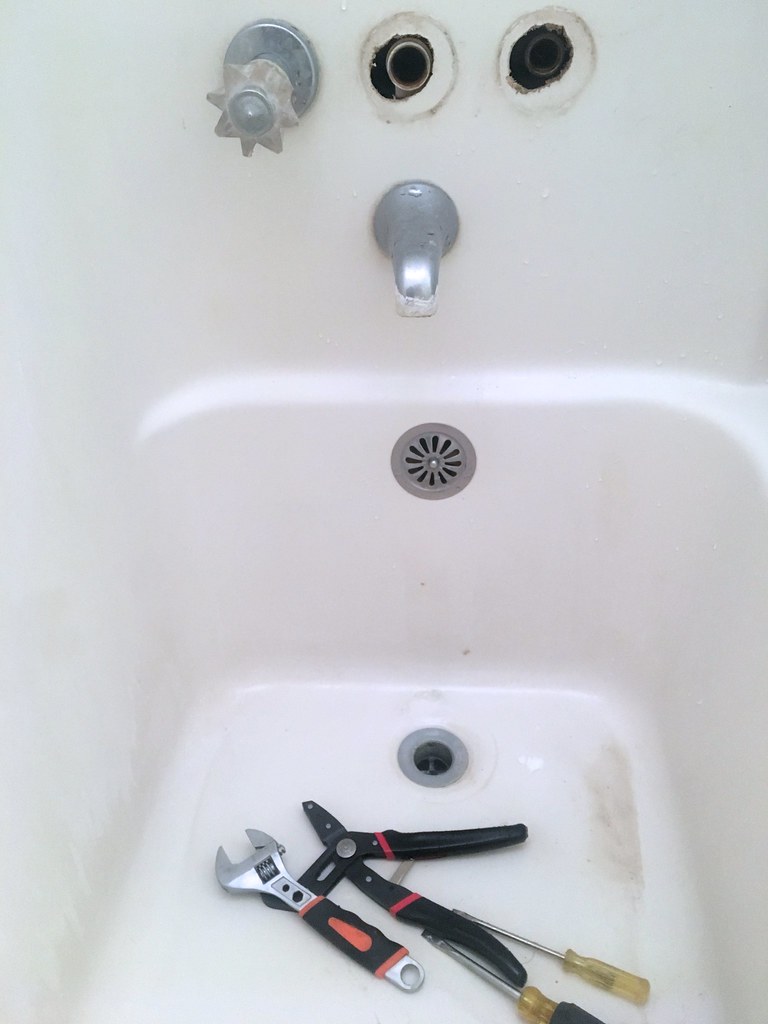
Online platforms such as local directories or review sites often feature authentic testimonials from homeowners who’ve had similar installations. This transparency allows you to make an informed choice without the guesswork. For instance, a plumber to install washing machine with high ratings likely has a track record of safe, efficient, and durable setups. Always prioritize those with positive customer experiences, as this reduces the risk of costly mistakes or future leaks that could disrupt daily routines.
Ultimately, verifying customer feedback ensures your washing machine installation is handled by a skilled professional, saving you time, money, and headaches down the line. When you choose a reputable plumber based on ratings, you’re investing in peace of mind and a seamless setup process that stands the test of time.
Requesting Quotes and Service Guarantees
Securing a reliable plumber to install washing machine is akin to finding a needle in a haystack—if the haystack was filled with less-than-reputable options. In South Africa’s bustling cities, the quest becomes even more nuanced, with countless service providers vying for your attention. The key is to request detailed quotes that outline every facet of the job, from connecting water lines to ensuring proper drainage. A reputable plumber to install washing machine will not only provide a transparent estimate but also stand behind their work with service guarantees. This reassurance saves you from future headaches, leaks, or costly repairs, transforming what should be a straightforward task into a seamless experience.
When searching for the ideal professional, consider asking for references or reading verified customer reviews—feedback from satisfied homeowners acts as a compass guiding you through the murky waters of options. To further streamline the process, compile a list of questions about warranties, turnaround times, and post-installation support. Remember, a truly skilled plumber to install washing machine will prioritize your peace of mind, offering a service guarantee that underscores their confidence in their craft. Ultimately, investing in a seasoned expert ensures your washing machine’s installation is both efficient and durable, sparing you from future drama and disrepair.
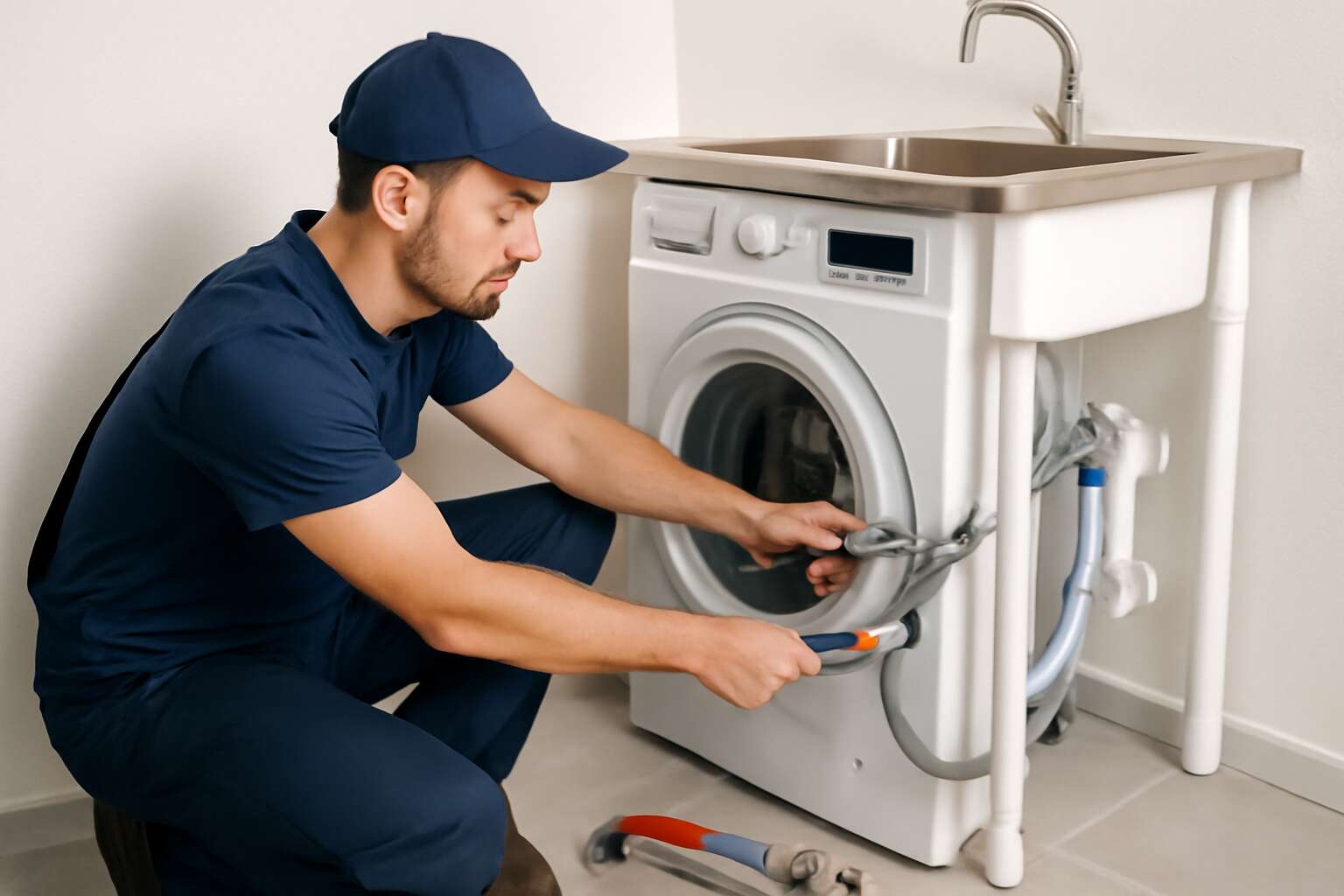
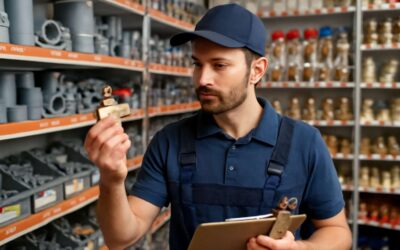
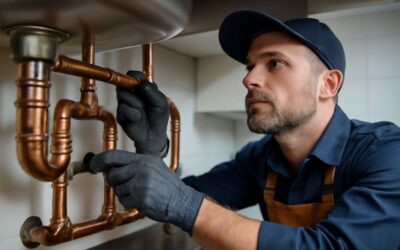
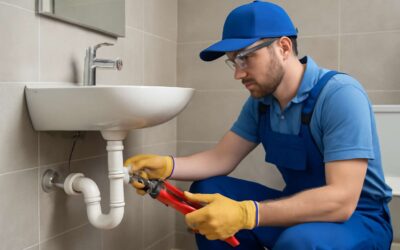
0 Comments